Postdoctoral Research Fellowship Program
CESI Postdoctoral Fellowship
2023 Request for Proposals
The CESI Postdoctoral Fellows is designed to attract the best and brightest young researchers in energy science, engineering, and materials to Cornell. The goal is to create a cohort of independent scholars pursuing frontier research in energy. Fellows will work in partnership with Cornell faculty sponsors on projects consistent with the CESI mission.
The mission of the Cornell Energy Systems Institute (CESI) is to “Make smart energy systems with low carbon footprint the norm through innovations in materials, technology, and systems design.” In pursuit of this mission, the Institute supports an ambitious agenda spanning discovery research to technology translation and systems integration. The goal is to catalyze the frontier research on materials, devices, data analytics and algorithms, and intelligent systems architectures required to lower cost, improve performance, and reduce the carbon footprint of energy systems. The Institute also serves as a hub for subject matter experts, programs, and multi-user facilities that translate energy-focused research discoveries to prototypes and prototypes to commercial practice. While CESI is interested in proposals in all areas of energy systems and technology research, currently there is particular interest in the following areas:
Carbon Capture, Sequestration and Reuse: Approaches involving the design of novel material systems, and molecular and/or process systems design and engineering that integrate electrochemical, chemical and microbial pathways for CO2 capture and utilization are highly encouraged. Candidates should have an interest in advancing the molecular-scale basis underlying carbon transformations by harnessing novel experimental methods and modeling approaches. Nature- or earth-inspired and unconventional approaches that aid in the design of energetically or atomistically favorable pathways for the reactive separation, directed synthesis of novel and high value products, or environmentally benign use and storage of CO2 from point source emissions and distributed sources (e.g., direct air or ocean capture) are of interest. Synergistic integration of nature- and engineered strategies for carbon removal are encouraged, for example the use of systems biology to leverage natural microbial communities to accelerate natural CO2 mineralization.
Energy Generation, Distribution, Buildings and System Integration: The very nature of our electric power generation system is evolving; replacement of fossil-based sources with renewables, rapid growth of distributed energy\resources and storage, and the growth in consumer participation in load flexibility (e.g., grid-interactive efficient buildings) and peer-to-peer trading programs. Our ability to meet changing needs for electric power under increasing renewable penetration and wide-spread electrification (notably both the transportation and the heating sectors) is contingent optimal investment and operations. Candidates in this area should have specific interest in modeling and optimization of complex networks (including, but not limited to, power systems, building systems, transactive energy systems) under uncertainty, and the sociotechnical challenges of large-scale infrastructure transitions.
Electrified and Sustainable Transportation: Energy efficiency in transportation from broad modeling perspectives including approaches that would foster broad adoption of electrification of vehicles. Candidates with specific interest in the design and control of coordinated electric vehicle charging or optimal deadline scheduling of residential charging are encouraged. Candidates could also be interested in using systems modeling approaches to the socio-technical transition to sustainable transportation that can produce optimal, flattened loads that would improve reliability of the power system as well as reduce system costs and emissions. Candidates with interest in power electronic hardware modeling, design and development for electrified transportation applications, such as onboard and fast wired charging and stationary and dynamic wireless charging, are also encouraged to apply.
Materials for Renewable Energy Applications: Transformational ways in how we more efficiently, cheaply and sustainably generate, store and transport energy require continued innovations for new materials and devices. Join world-leading research efforts in discovering and developing a wide range of energy-related materials, such as photovoltaics, thermoelectrics, advanced battery materials and catalysts, membranes and supports for mobile fuel cells. Research is also conducted on materials processing that minimizes environmental impact.
Program Structure
· The CESI Fellowships are two-year appointments and provide up to 50% of the cost associated with sponsoring a postdoctoral scientist at Cornell, with the faculty advisors providing the other 50%.
· Two to three fellowships will be awarded for a two-year period beginning in 2023. The start date will be between January and August 2023. This is flexible and based on agreement between the candidate’s advisors and CESI
· The fellowships carry a salary of $58,000 per year, full Cornell University employee benefits, and $5,000 per year for research- and travel-related expenses
· The fellowship term is two years. The second year is contingent on performance and mutual agreement between the fellow, the advisor, and CESI
· Postdoctoral fellows can spend variable portions of their fellowship period at Cornell, in other relevant facilities, or in the field as dictated by their research.
· All fellows will have access to Cornell’s Office of Postdoctoral Studies, which provides career services, including CV and resume writing, interview preparation, workshops designed specifically for postdocs including a postdoc leadership program, and social activities.
· The fellow’s appointment will be in CESI
Application Process
Applications will be reviewed in a competitive process designed to evaluate qualifications, the quality and originality of the proposed research, and the potential of the work to facilitate new research collaborations among CESI faculty. Applicants should not already be in a targeted research group at Cornell. Successful applications must have at least two Cornell faculty sponsors, at least one of whom should be an active CESI faculty member (see https://energy.cornell.edu). Successful applicants should also have a demonstrated record of research excellence evidenced by external metrics appropriate for their field, such as high-impact publications, awards, patents, and invited talks at international meetings.
All fellows agree to include the CESI byline on all publications and presentations during their appointment.
CESI Fellows will also receive lifetime memberships in the Society of Cornell Fellows, along with the participants in other named prestigious and competitively awarded Cornell postdoctoral fellowships.
Program Timeline
|
September 21st, 2022 |
Applications open |
|
October 28th, 2022 |
Applications due |
|
November 2022 |
Interview selected candidates |
|
December 2022 |
Winners Announced |
Full Application: Required Application Materials:
1. Introduction – short summary of the application (maximum 1 page)
2. Personal Statement that includes a brief description of the applicant’s PhD research project and a discussion of the applicant’s career goals. (maximum 1 page)
3. Curriculum Vitae, including list of publications and presentations. (maximum 2 pages)
4. Research Statement which should explicitly address the relationship between the proposed work and CESI research mission. The proposal should also list the names, email address, and affiliation of the Cornell faculty sponsors. (maximum 2 pages)
5. Letters of support from Cornell sponsors. A single letter co-signed by multiple sponsors is acceptable. (maximum 1 page per letter)
6. Reference Letters: At least one (e.g., from thesis advisor, collaborators).
Application materials must be submitted online at Academic Jobs Online: https://academicjobsonline.org/ajo/jobs/22766
Current and past CESI Postdoc Fellows
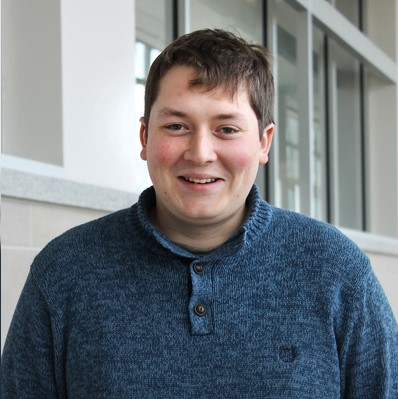
David Andrew Specht (2022)
CO-ADVISED BY BUZ BARSTOW AND GREESHMA GADIKOTA
David received his PhD in Applied Physics in 2021. As an undergraduate, he majored in physics and minored in environmental science and policy, with the intent of pursuing a research career developing technologies that would reduce our footprint on the environment. His interest in the intersections between physics and biology led to his subsequent PhD work, here at Cornell with the Lambert Lab, where he studied the physics of CRISPR, a biological system that enables human-programmable interaction with DNA. He used next generation sequencing to study the sequence-specific determinants of binding of the CRISPR protein Cas12a, and how the binding of these proteins can be used to control gene expression via synthetic gene circuits. Through his PhD research, he came to appreciate how powerful synthetic biology - our new ability to engineer organisms at a high level - can be.
While it is clear that the best way to alleviate climate change in the short term is to reduce and eliminate emissions, it is perhaps even clearer that due to a lack of political will and anemic energy transitions there will be a need in the future to be able to sequester carbon from the air or oceans at a massive, gigaton-level scale. David's objective is to engineer electroactive microbes studied by the Barstow lab in order to be able to biomineralize atmospheric carbon using genetic pathways derived from a carbonate-depositing microbe. This would support a process which can doubly draw down carbon from the atmosphere using biomineralization (a carbon negative process) using microbes fed on formate derived from carbon dioxide (a carbon net-zero process) and calcium, iron, or magnesium ions from industrial or mining byproducts or natural sources, such as geological reservoirs or seawater.
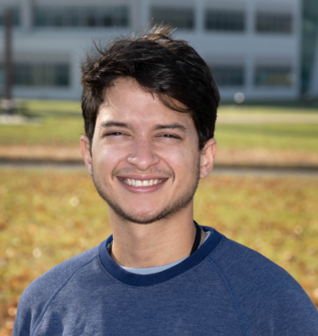
Joesene J. Soto Perez (2022)
Advised by HECTOR ABRUNA
Joesene J. Soto Perez is a final year Ph.D. candidate (Analytical Chemistry) in the Department of Chemistry at the University of Puerto Rico, Rio Piedras campus. He is currently a visiting scientist in the Surface Electrochemistry and Electrocatalysis group from the Chemistry Department of Brookhaven National Laboratory. Joesene has focused his graduate work on understanding the chemistry of emerging nanomaterials as low loading Platinum group metals (PGM) combined with first-row transition metals for energy conversion reactions. He highlights the use of in situ and operando XAS experiments combined with electrochemistry to study these materials in alkaline and acidic mediums.
As a CESI postdoctoral fellow, Joesene Soto will be working with non-precious metal electrocatalysts for energy conversion reactions (ORR, OER, HER and HOR). His research project is entitled, Identifying activity-stability relationships in non-precious-metal fuel cell catalysts. He will specifically focus on 3D perovskites oxides and metal carbides/nitrides. In situ and operando electrochemical XAS experiments will provide valuable information regarding the electrocatalysts' leaching behavior, eventually translating into performance and durability insights under real conditions.
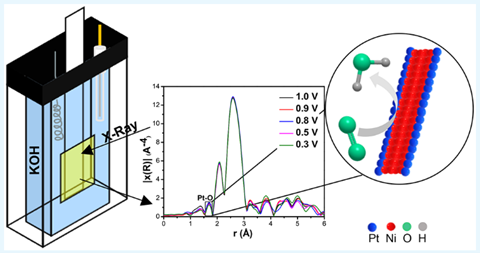

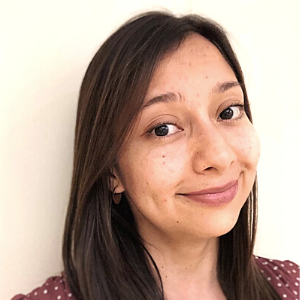 Regina Garcia-Mendez (2020)
Regina Garcia-Mendez (2020)
co-advised by Dr. Andrej Singer and Dr. Lynden Archer
Regina Garcia-Mendez completed her Ph.D. in Materials Science and Engineering at the University of Michigan in 2020, under the supervision of Professor Jeff Sakamoto. Her graduate work focused on correlating structural and interfacial effects of ceramic solid electrolytes with cycling stability of Li metal in solid-state batteries. Even though most recent investigations have been carried out focusing on the lithium anode-electrolyte interface, including her thesis, the practical stability of solid electrolytes at high voltages still needs further investigation. In particular, the (electro-) chemical evolution of electrode materials and interfaces that can often be linked to mechanical degradation due to the all-solid nature of these systems.
As a CESI Post-Doctoral Fellow, Garcia-Mendez’ research will pursue forming anionic polymer coatings in-situ throughout the cathode to prevent exposing the solid electrolyte to oxidation and attain intimate contact between components. Furthermore, the compliant nature of the polymer may accommodate volume changes during cycling allowing capacity retention. Regina’s research project is entitled, In-situ generated cathode electrode interfaces for high voltage stabilization of a ceramic electrolyte. Advanced characterization techniques such as in-situ soft and hard X-ray scattering and imaging techniques coupled with Electrochemical Impedance Spectroscopy (EIS) measurements will be used to understand the formation process and evolution of the interfaces. In addition, mobility and structural changes under dynamic conditions will be studied.
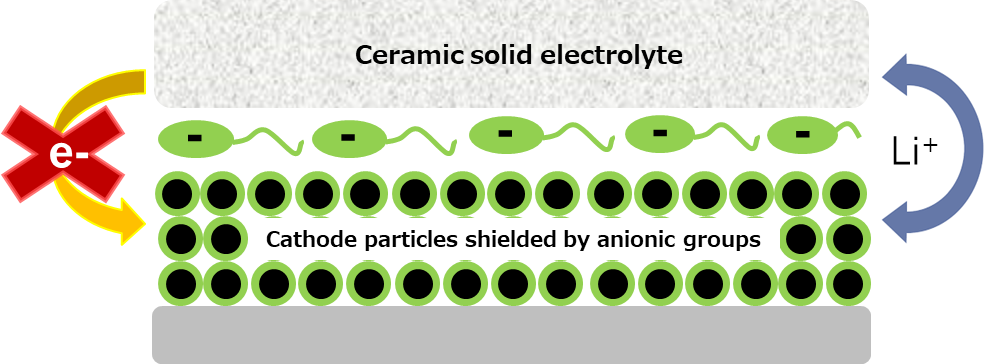
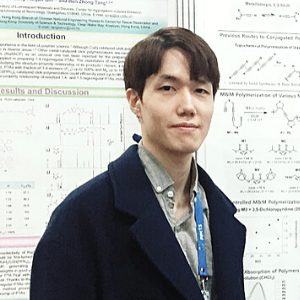 Cheol Kang (2020)
Cheol Kang (2020)
co-advised by Dr. Geoffrey Coates and Dr. Héctor D. Abruña
Cheol Kang is a final-year Ph.D. candidate (supervised by Prof. Tae-Lim Choi) in the Department of Chemistry at Seoul National University. He completed his Bachelor’s Degree in the same department and started his Ph.D. course in 2014. During the course, Cheol focused on developing synthetic methodologies for making conjugated polyenes and polyenynes from multi-yne monomers by using Ru-based olefin metathesis catalysts. By combining olefin metathesis and metallotropic 1,3-shift reactions (cascade M&M polymerization), he enabled the controlled synthesis of conjugated polyenynes via chain-growth mechanism. After completing his Ph.D., he will join the Coates group in the Department of Chemistry and Chemical Biology at Cornell.
As a postdoctoral researcher, Cheol aims to develop new organic cathode materials by combining redox-active side chains with conductive polymer backbone. To date, most conventional batteries include inorganic materials that are rare, expensive, and energy-consuming for recycling. In contrast, organic materials enable access to greener energy storage systems because they are based on naturally abundant elements which are easier to recycle. Cheol proposes making new polymeric cathode materials consisting of conductive backbone and redox-active side chains via living cyclopolymerization of 1,6-heptadiyne derivatives. Owing to the innate conductivity of polyacetylene backbone, this new material will not require the use of carbon additives, which were generally added to conventional organic cathodes for better electronic conductivity. Furthermore, he suggests making network polymers by using cross-linking agents (covalently linked two diyne units) to improve structural stability, thereby enhancing the charge/discharge cycling stability. Due to the living character of this polymerization system, even block copolymerization with monomers having hydrophilic groups will be possible, which will improve the ionic conductivity of the cathode material. This multi-functional material will offer a better chance for sustainable, versatile, and potentially low-cost energy storage devices.
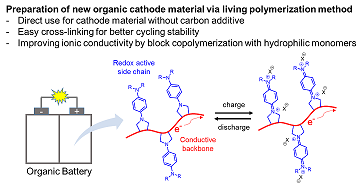
 Shuangyan Lang (2019)
Shuangyan Lang (2019)
co-advised by Dr. Héctor D. Abruña, Dr. Lynden Archer and Dr. Jin Suntivich
Shuangyan Lang is a final-year doctoral candidate (supervised by Profs. Li-Jun Wan and Rui Wen) in Physical Chemistry at the Institute of Chemistry, Chinese Academy of Sciences (ICCAS) in Beijing, China. She earned a Bachelor’s Degree in 2014 in the department of Chemistry, Jilin University. Her Ph.D research has focused on the in-situ investigation of interfacial processes and kinetics of Li-S batteries via EC-AFM (electrochemistry-atomic force microscopy). The research project that she will be working on is entitled, In Operando Fundamental Studies of Li/S Cells as Next-Generation Electrical Energy Storage Technologies.
Her research will focus on the operando observation and characterization of the interfacial processes and an in-depth investigation of the reaction mechanism of Li-S batteries. Through the use of advanced operando techniques (Scheme 1) such as X-ray based methods, in-situ TEM and cryo-STEM, she intends to achieve the direct visualization of the morphological and structural evolution at both CEI (cathode electrolyte interface) and SEI (solid electrolyte interface), providing a detailed mechanistic understanding/picture of the delicate interplay of interfacial processes in Li-S batteries and insightful clues for novel design criteria for advanced, next-generation electrical energy storage technologies.
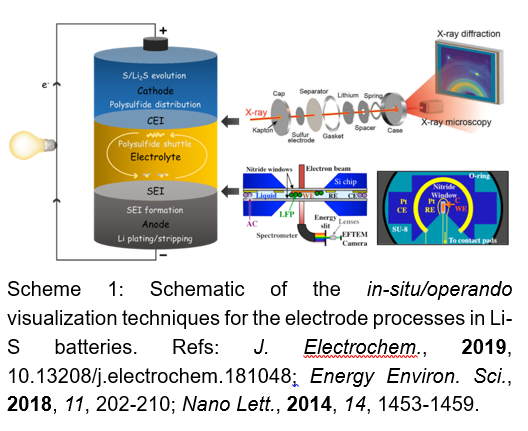
 Alexa Schmitz (2019)
Alexa Schmitz (2019)
co-advised by Dr. Buz Barstow and Dr. Esteban Gazel
Alexa Schmitz is currently a postdoc in the Barstow Lab in Biological and Environmental Engineering at Cornell. Originally from southeastern PA, Alexa completed her bachelor’s degrees in biochemistry and violin performance at Oberlin College and Conservatory in Oberlin, OH. She then interned at the Smithsonian Tropical Research Institute in Panama studying competitive interactions between microbial tree-root endosymbionts on an island in the middle of the Panama Canal. With a desire to gain competence in microbiology and molecular biology, Alexa joined the lab of Dr. Cammie Lesser at Harvard Medical School where she developed a microscopic assay for visualizing protein-protein interactions in yeast, which she used to investigate how Shigella flexneri, a causal agent of dysentery, secretes type III effector proteins. Alexa first came to Cornell University for her PhD in Plant Pathology and Plant-Microbe Biology, which she completed in the lab of Dr. Maria Harrison at Boyce Thompson Institute studying molecular mechanisms underlying the interaction between beneficial arbuscular mycorrhizal fungi and plant roots. Now in the Barstow Lab, she is excited to biologically engineer solutions to problems in sustainable energy using microorganisms. When not in the lab, Alexa continues to pursue her passion for music as a violinist with Ithaca’s Cayuga Chamber Orchestra.
As a CESI postdoctoral fellow, Alexa Schmitz will be working towards the development of an efficient, sustainable, environmentally responsible, and commercially viable system for extraction of rare earth elements (REE). The global demand for these critical metals is rising rapidly due to their use in many important technologies, especially renewable energy systems.Typically, extraction of REE requires harsh chemicals and high temperature and pressure. A promising alternative is to use the bacterium, Gluconobacter oxydans to bioleach REE from end-of-life waste via its production of strong, but biodegradable, organic acids. Furthermore, the costly sugars used by the bacteria to produce the acid can be obtained by enzymatically breaking down agricultural waste, like corn stover, using the fungus, Trichoderma reesei. Although such a combined biological system can work in the lab, scaling up for commercial application will require much improvement of both microorganisms. With her co-advisors, Buz Barstow and Esteban Gazel, and in collaboration with researchers at the Idaho National Lab, Alexa will comprehensively identify genes underlying REE bioleaching and corn stover digestion by G. oxydans and T. reesei, respectively, and then target those genes for improvement through bioengineering. A bioleaching system combining both improved G. oxydans and improved T. reesei could provide a game-changing solution for environmentally responsible and sustainable REE recovery from end-of-life waste.

